HIV Prevalence and Associated Factors Among Men in South Africa 30 Years into the Epidemic: The Fifth Nationwide Cross‑Sectional Survey
We investigated HIV prevalence and associated factors among men ≥ 15 years in South Africa using data from a 2017 nationwide cross-sectional survey. HIV prevalence was 10.5% among 6 646 participants. Prevalence increased from 4.1% in the younger men (15–24 years), 12.5% in young men (25–34 years) to 12.7% in older men (≥ 35 years). Odds of being infected with HIV were […]
Rethinking Gender, Heterosexual Men, and Women’s Vulnerability to HIV/AIDS
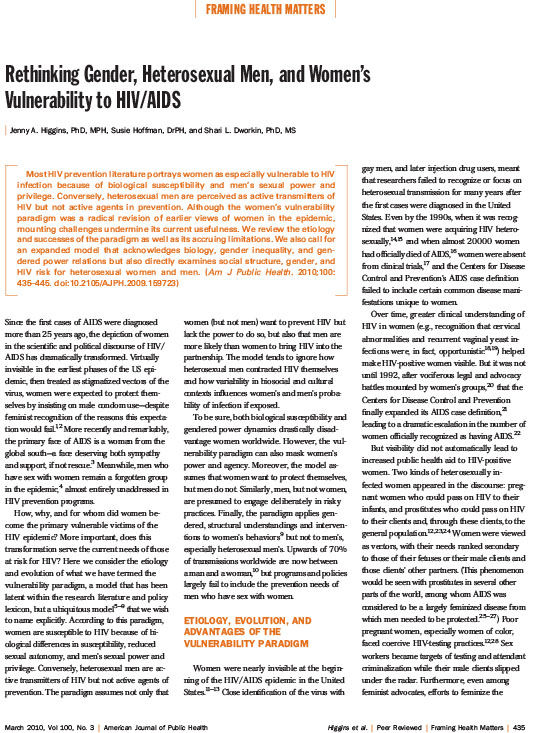
Most HIV prevention literature portrays women as especially vulnerable to HIV infection because of biological susceptibility and men’s sexual power and privilege. Conversely, heterosexual men are perceived as active transmitters of HIV but not active agents in prevention. Although the women’s vulnerability paradigm was a radical revision of earlier views of women in the epidemic, […]
No man left behind
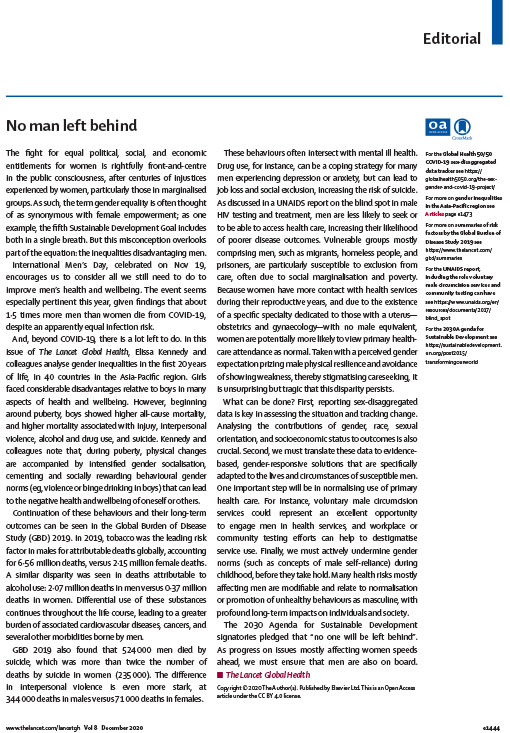
The fight for equal political, social, and economic entitlements for women is rightfully front-and-centre in the public consciousness, after centuries of injustices experienced by women, particularly those in marginalised groups. As such, the term gender equality is often thought of as synonymous with female empowerment; as one example, the fifth Sustainable Development Goal includes both […]
Men’s Perceptions of Women’s Rights and Changing Gender Relations in South Africa: Lessons for Working With Men and Boys in HIV and Antiviolence Programs

Emerging out of increased attention to gender equality within violence and HIV prevention efforts in South African society has been an intensified focus on masculinities. Garnering a deeper understanding of how men respond to shifting gender relations and rights on the ground is of urgent importance, particularly since social constructions of gender are implicated in […]
Gendered health institutions: examining the organization of health services and men’s use of HIV testing in Malawi
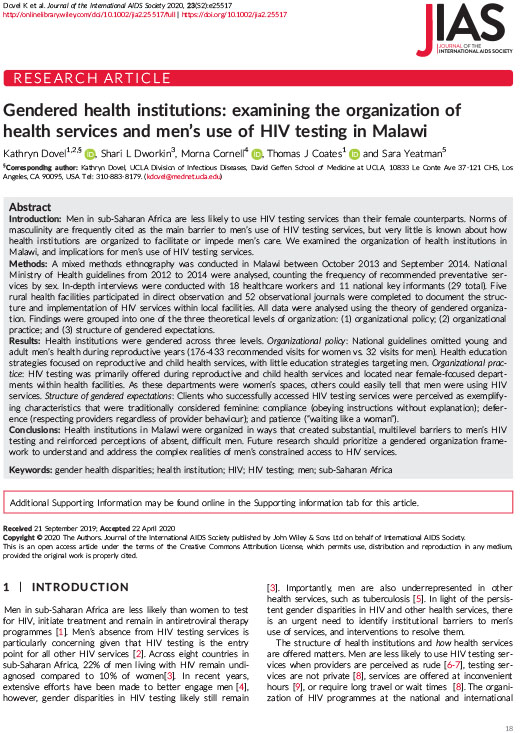
Introduction Men in sub-Saharan Africa are less likely to use HIV testing services than their female counterparts. Norms of masculinity are frequently cited as the main barrier to men’s use of HIV testing services, but very little is known about how health institutions are organized to facilitate or impede men’s care. We examined the organization […]
Frequency of visits to health facilities and HIV services offered to men, Malawi
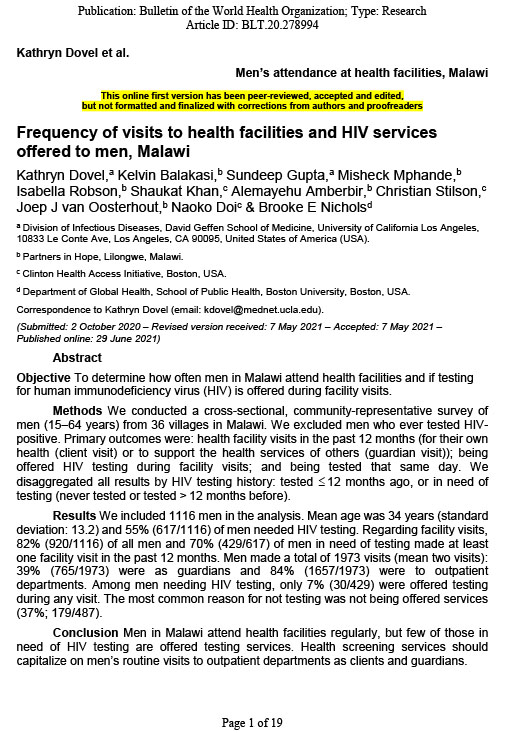
Objective To determine how often men in Malawi attend health facilities and if testing for human immunodeficiency virus (HIV) is offered during facility visits. Methods We conducted a cross-sectional, community-representative survey of men (15–64 years) from 36 villages in Malawi. We excluded men who ever tested HIV-positive. Primary outcomes were: health facility visits in the […]
Public health blindness towards men in HIV programmes in Africa
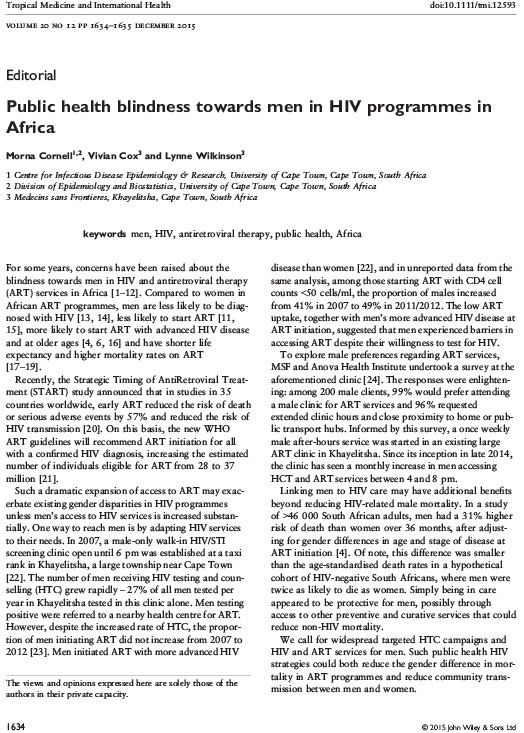
For some years, concerns have been raised about the blindness towards men in HIV and antiretroviral therapy (ART) services in Africa. Compared to women in African ART programmes, men are less likely to be diagnosed with HIV, less likely to start ART, more likely to start ART with advanced HIV disease and at older ages […]
Perpetuating gender inequity through uneven reporting
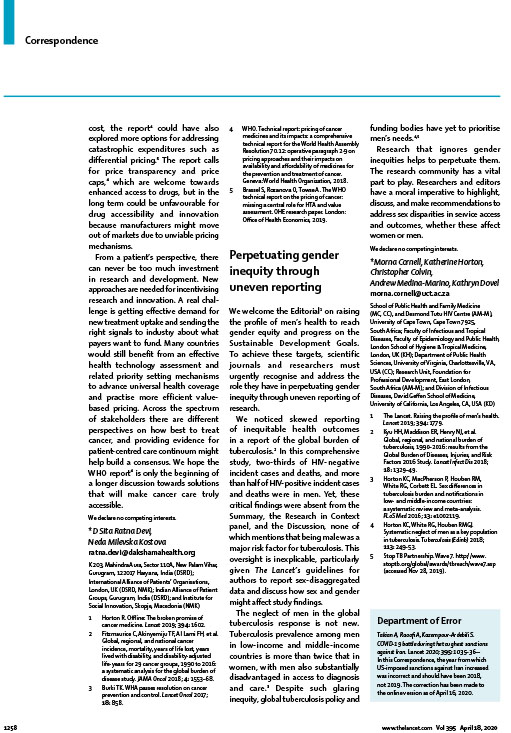
We welcome the Editorial on raising the profile of men’s health to reach gender equity and progress on the Sustainable Development Goals. To achieve these targets, scientific journals and researchers must urgently recognise and address the role they have in perpetuating gender inequity through uneven reporting of research.
Moving beyond gender stereotypes
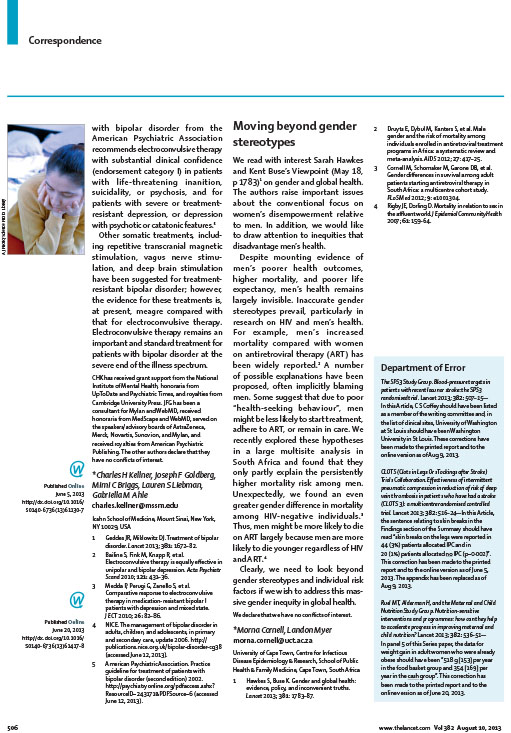
We read with interest Sarah Hawkes and Kent Buse’s Viewpoint (May 18, p 1783) on gender and global health. The authors raise important issues about the conventional focus on women’s disempowerment relative to men. In addition, we would like to draw attention to inequities that disadvantage men’s health.
HIV services in sub-Saharan Africa: the greatest gap is men
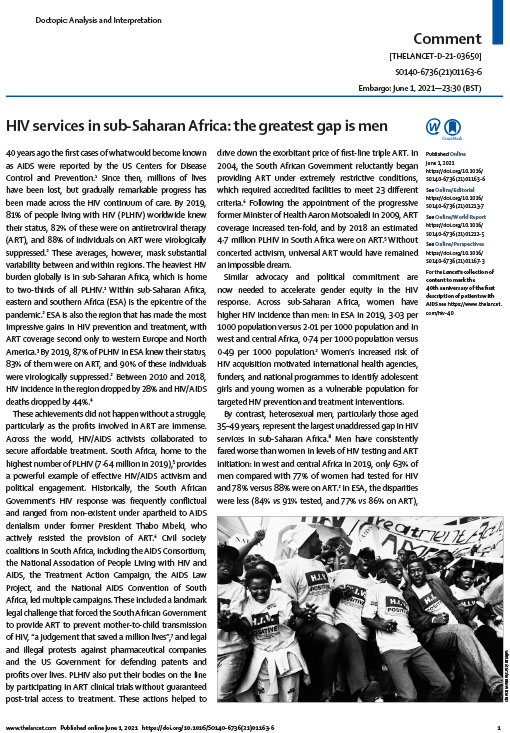
40 years ago the first cases of what would become known as AIDS were reported by the US Centers for Disease Control and Prevention. Since then, millions of lives have been lost, but gradually remarkable progress has been made across the HIV continuum of care. By 2019, 81% of people living with HIV (PLHIV) worldwide knew […]


